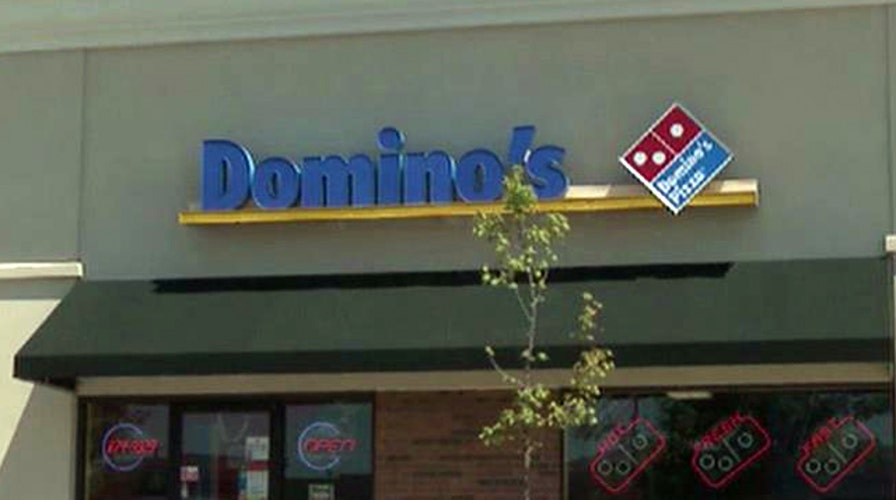ObamaCare creating rules requiring calorie info on menus
Peter Doocy reports from Alexandria, Virginia
Tucked deep in the Affordable Care Act is language requiring all restaurants with at least 20 locations to list nutritional information alongside each and every item on their menu.
That edict is now creating headaches for small business owners across the country, particularly pizza chains.
Take Domino's. There are 34 million different pizza combinations available at the chain, when all crusts and cheeses and toppings are factored in.
Now imagine walking into a Domino's and navigating a menu board with 34 million different options on it.
Executives say figuring out the small print will be a big burden.
"Our company, like many pizza enterprises, is individual small business franchisees, so these are people that own three or four, or one or two Domino's pizza stores," said Domino's spokeswoman Lynn Liddle. "To have to redo the menu boards every time something changes on a calorie count would cost them several thousand dollars."
Liddle said the FDA has suggested offering a calorie range for different pies, instead of listing each and every possibility -- but she said that isn't helpful, since 90 percent of their business comes in over the phone or online. And none of those people ever set foot in the store, where the menu board would be.
Domino's has posted some nutritional information online for 13 years, and would like that to satisfy the FDA.
Some supporters of the Affordable Care Act are starting to agree.
"What the FDA did, I think, was really an overreach," Rep. Loretta Sanchez, D-Calif., told Fox News.
Sanchez backs legislation that encourages the FDA to allow certain restaurants -- especially places that deliver frequently -- to provide information online or through an app, or offer information for a variety of toppings and combinations.
The Common Sense Nutrition Disclosure Act of 2013 has bipartisan support in Congress.
Roughly 80 percent of customers who visit restaurants with calorie counts on the menu actually notice the nutritional information, according to a November report by the Drexel University School of Public Health. The Drexel study also found that 26 percent of those diners order differently because of the listings -- on average, trimming 151 calories per meal.
The FDA has not yet responded to questions about when these regulations might take effect, or what might happen to small businesses unwilling or unable to comply.





